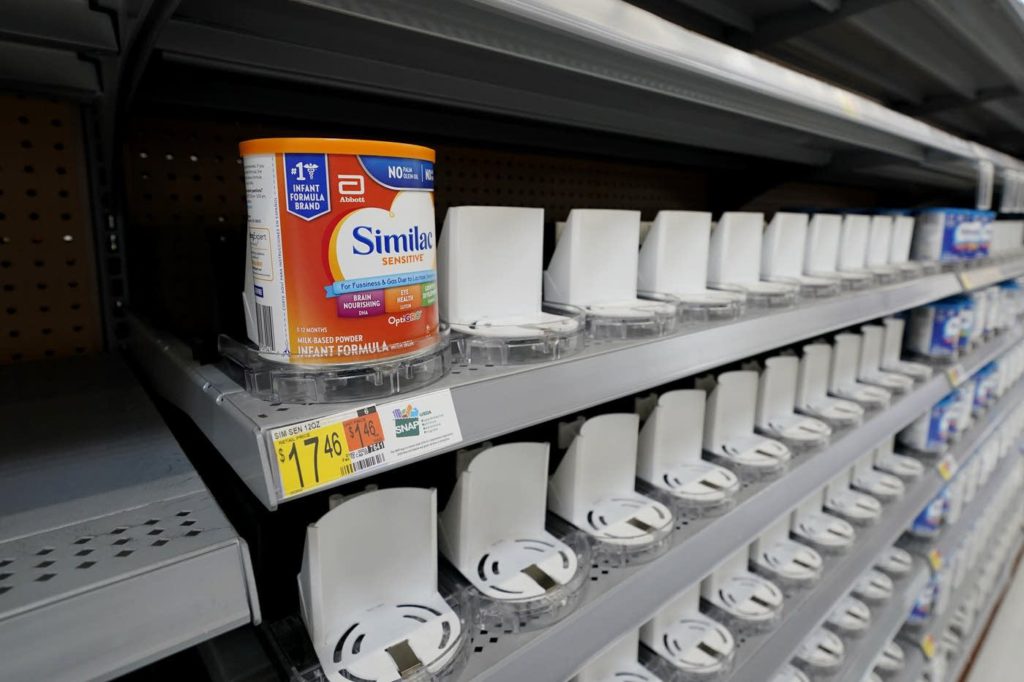The baby formula shortage in the US may soon come to an end after formula manufacturing firm Abbot announced the reopening of its Michigan based plant on Saturday.
The closure of the plant, one of America’s largest in February due reported contamination, coupled with global supply chain challenges, had caused a nationwide disruption of available baby food in the US last month.
The acute shortages saw parents and care givers scrambling for supplies, from any and every available sources. As they sought formula from food banks, friends and doctor’s offices.
With reports of many turning to social media in a desperate attempt to track down baby milk, while others resorted to making their own substitutes (against medical advice).
The news comes as the facility reportedly met initial government sanitary requirements for reopening,
In a statement Abbott said; it would prioritize the production of its EleCare specialty formulas for babies with severe food allergies and digestive problems.
“We’re also working hard to fulfil the steps necessary to restart production of Similac and other formulas,” Abbott said, referring to its more mainstream products. It plans to ramp up production as quickly as possible “while meeting all requirements”, it said.
Abbot added that, it would take approximately three weeks before new formula from the plant would be available in stores.
Last month, US President Joe Biden enacted the Defense Production Act, which is a war-time measure, to boost domestic production of formula, and ordered the Pentagon to fly in shipments from overseas.
The bill which was intended to help alleviate the acute shortage was also got support from both sides of the political divide in House of Representatives.
The company’s plant shut down in February came after the reported death of two babies, as result of alleged bacterial contamination which they subsequently issued a product recall over the concerns.
Reports further asserted that; Inspectors for the Food and Drug Administration (FDA) uncovered a number of ‘anomalies’ at the plant, including bacterial contamination, leaks in the roof and a lack of basic hygiene.
However, the company had disputed such claims, expressing that there is no conclusive evidence linking its products to infant illnesses or deaths.




